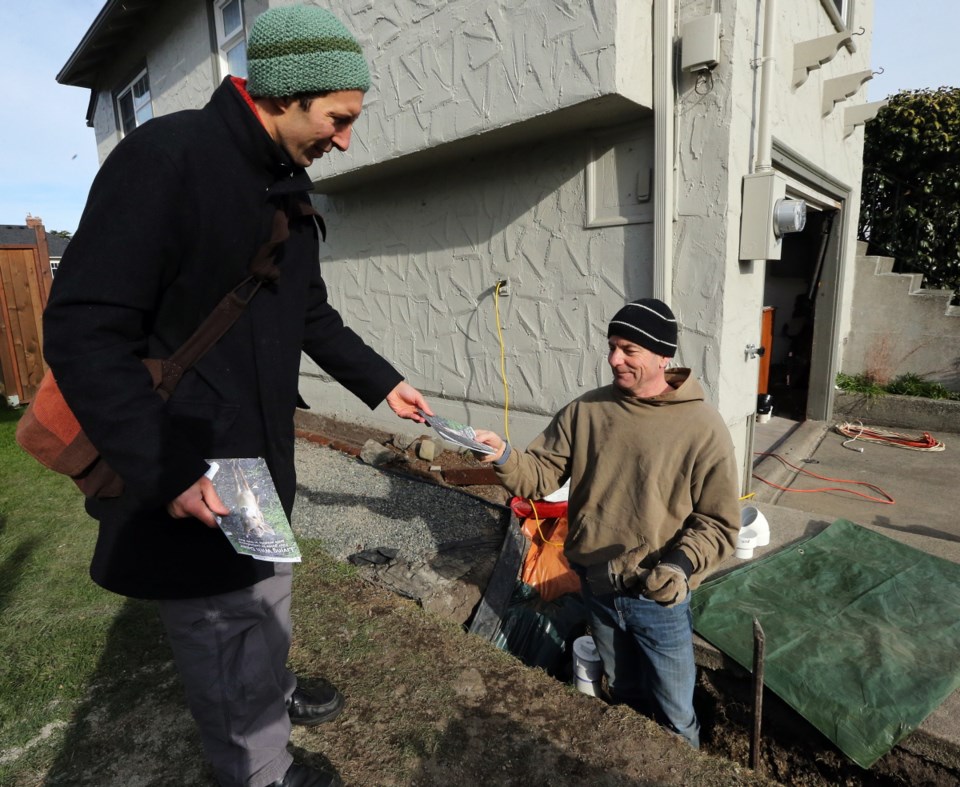Co-existence is the key to solving the deer issue in Oak Bay, says a group opposed to a plan to cull the animals.
The group fanned out across the municipality on Saturday, handing out booklets advocating education over trapping and killing when it comes to managing the deer population.
Oak Bay council has approved participation in a Capital Regional District pilot project that would see 25 deer trapped and killed within the municipality’s borders.
The venison, hide, antlers and hooves from the animals will go to the Songhees First Nation.
The $12,500 cull came about in response to complaints from residents that deer were destroying gardens and shrubs, and posing a danger to people and pets.
The council also cited health and safety concerns. In 2012, 23 deer carcasses were retrieved from Oak Bay roads by public works crews. There were at least 34 in 2013.
The anti-cull group also want to minimize the number of collisions between deer and vehicles, but think that killing the animals is the wrong way to go about it, calling the cull cruel, unnecessary and ineffective.
Dave Shishkoff, from the Victoria office of Friends of Animals, an international non-profit organization, said 5,000 of the 16-page Living With Deer pamphlets have been printed. The aim is to distribute them to every Oak Bay household, he said.
Homeowners approached by the volunteers seemed receptive.
Greg Kent, who lives near Carnarvon Park, said deer haven’t been much of a problem for him.
“I’m OK with deer,” he said. “If you don’t like them, build a fence.”
Shishkoff said the basic goal of the volunteers’ effort is to keep deer from harm. He said Friends of Animals is working with the B.C. SCPA and the Association for the Protection of Fur-Bearing Animals.
Among their top recommendations is for people to stop feeding deer.
“No one should be feeding deer; it’s a huge problem,” Shishkoff said. “What it does is it habituates deer to the area or to people.”
Speeding on certain stretches, including Cadboro Bay Road north of Lansdowne Road, is a big factor in collisions with deer, he said.
The group would like to see lower speed limits and more signs warning of deer in areas where the animals are known to congregate.



